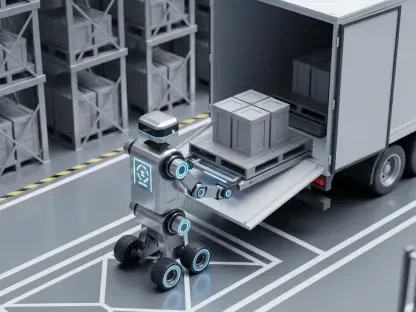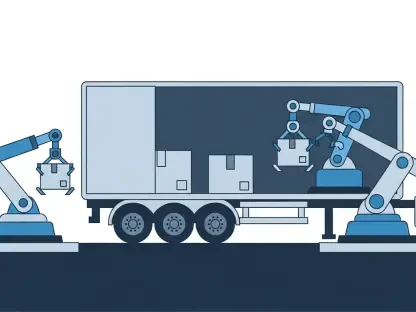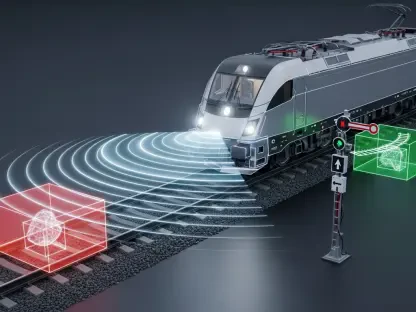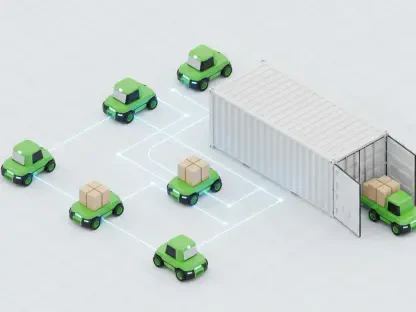In recent years, the demand for more efficient and accurate delivery services has intensified, particularly in the last-mile logistics sector, where the final frontier of parcel delivery occurs. This pivotal stage in the supply chain determines the ultimate speed and reliability with which goods reach consumers. At this juncture, UniUni, a chief player in delivery solutions, has embarked on a significant collaboration with Global Robotics Services (GRS), known for its pioneering robotic sortation systems. This alliance aims to inject cutting-edge technology into UniUni’s operations, heralding a new era of automation in last-mile logistics. By incorporating GRS’s state-of-the-art robotic solutions, UniUni expects to significantly enhance its parcel processing capabilities and, in turn, improve customer experiences. This development, reflective of broader industry trends, underscores the transformative power of robotics in optimizing critical logistics functions and presents a compelling case for future developments in automated delivery solutions.
Enhanced Efficiency Through Automation
A primary benefit of integrating GRS’s robotic sortation solutions is the marked improvement in efficiency and operational speed. With robotics at the helm, sorting processes become exponentially faster, enabling UniUni to handle larger volumes of parcels with reduced manual intervention. This shift towards automation not only promises to bolster overall operational performance but also aligns with growing consumer expectations for rapid and reliable delivery. Hundreds of parcels can now be sorted in a fraction of the time compared to traditional methods, leading to significantly increased throughput. The advanced precision of GRS’s robotic systems, noted for exceeding a 99.99% accuracy rate, ensures that packages reach their intended destinations without error. This remarkable accuracy reduces the margin of human error and facilitates a more dependable service, catering to the heightened standards of modern e-commerce. By deploying such precision-oriented technology, UniUni stands at the forefront of an industry increasingly focused on leveraging automation to meet consumer demands and operational challenges.
The incorporation of GRS’s innovative technologies into UniUni’s infrastructure epitomizes a crucial step forward for last-mile logistics. Specifically, the 3D Sorting System and T-Sort Sorting System, equipped with AI-driven navigation and real-time sensor technology, represent sophisticated solutions to existing logistical challenges. These systems seamlessly integrate with UniUni’s current Warehouse Execution System, ensuring smooth transitions and maintaining high standards of efficiency. This comprehensive automation approach enables UniUni to remain agile and adapt to fluctuating volume demands, which is essential in today’s dynamic logistics environment. The investment in such transformative technology not only addresses current operational challenges but also positions UniUni to capitalize on future growth opportunities. By enhancing process efficiency and accuracy, the company strengthens its competitive position, ensuring it remains a leader in the increasingly automated logistics sector. As more industry stakeholders recognize the value of such innovations, the adoption of robotics in logistics is projected to become an even more integral facet of operational strategy.
Operational Scalability and Industry Trends
Another striking advantage of the UniUni and GRS partnership is the scalability that these robotic solutions provide. As e-commerce continues to expand, the ability of logistics companies to scale operations in response to increasing demands is crucial. GRS’s technologies offer UniUni the flexibility to efficiently manage varying parcel volumes by easily adjusting to the needs of the market. This adaptability highlights a growing trend in the logistics sector where companies are prioritizing scalable solutions that can handle spikes in demand without compromising service quality. The partnership illustrates the potential of robotics to redefine capacity management, demonstrating how a strategic adoption of technology can translate into an enhanced delivery framework. The broader industry is witnessing a shift towards automation as companies seek to not only streamline operations but also gain a competitive edge through technological prowess. As businesses strive to meet consumer expectations for expediency and reliability, the movement towards embracing advanced robotics and automation solutions is becoming increasingly prolific.
UniUni’s collaboration with GRS is emblematic of a broader movement towards digital transformation in logistics. Robotics, with its precise and efficient capabilities, are consistently being positioned as a strategic asset to enhance operational capacity across the globe. By integrating GRS’s adaptive systems, UniUni not only enhances its capability to deliver but also positions itself to innovate further in line with evolving industry standards. The partnership reflects an industry-wide acknowledgment that robotics holds transformative potential for logistics, enabling companies to reduce costs, enhance service delivery, and maintain competitiveness. As UniUni continues to integrate these solutions, it sets a benchmark for the effective use of robotics in logistics. This movement is part of a larger narrative where technology-driven enhancements become central in reshaping service models. The UniUni-GRS relationship is a testament to the vibrant evolution occurring within logistics, fortifying the case for robotics as a catalyst for efficiency and growth.
Driving Customer Satisfaction and Future Perspectives
In recent times, the call for enhanced efficiency and precision in delivery services has surged, with a strong emphasis on the last-mile logistics sector. It’s in this segment that the crucial stage of parcel delivery unfolds, determining how quickly and reliably goods end up in the hands of consumers. At this pivotal point, UniUni, a prominent player in delivery solutions, has forged a strategic partnership with Global Robotics Services (GRS), renowned for its innovative robotic sortation systems. This collaboration aims to seamlessly integrate leading-edge technology into UniUni’s operations, ushering in a new chapter of automation in last-mile logistics. By adopting GRS’s advanced robotic solutions, UniUni anticipates a substantial boost in its parcel processing capabilities, thereby enhancing customer satisfaction significantly. This development, mirroring industry-wide trends, showcases the transformative influence of robotics in refining essential logistics tasks, presenting a persuasive case for future automated delivery advancements.









